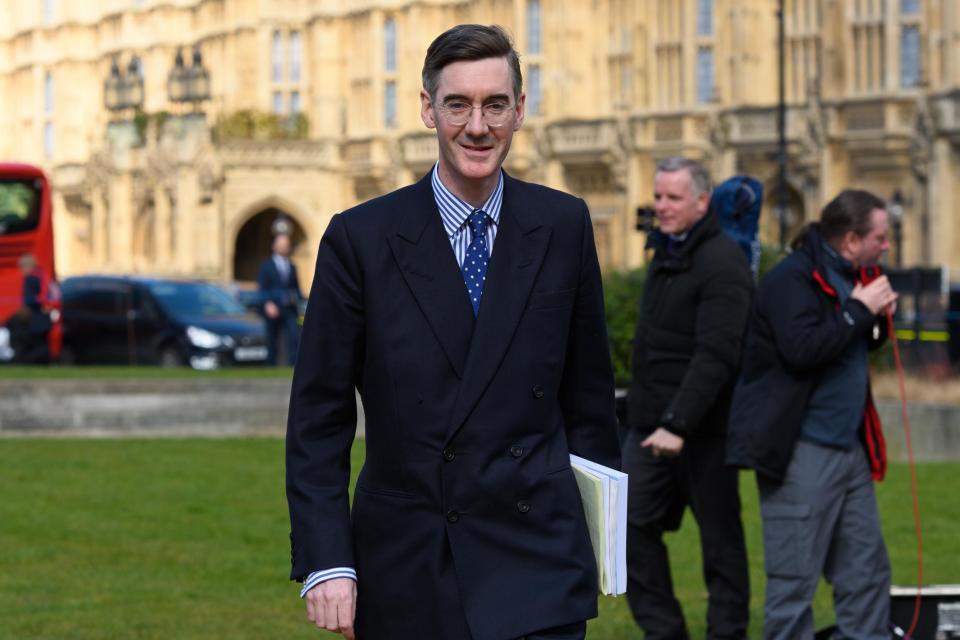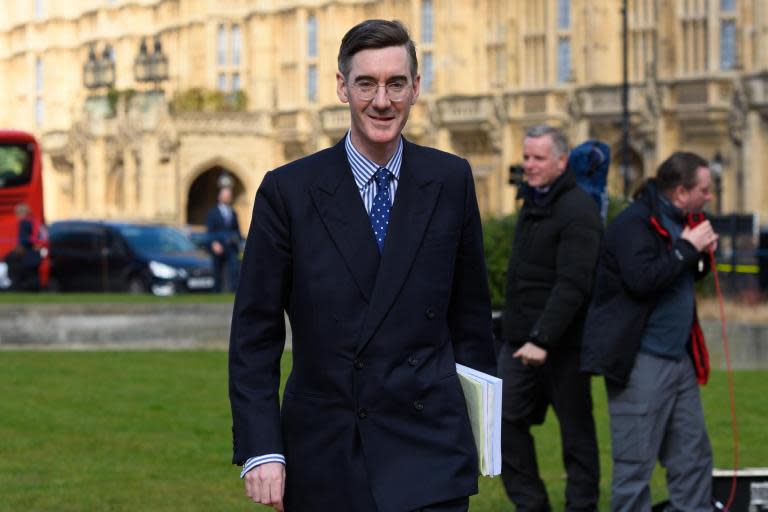Theresa May faces Brexit backlash from her own MPs protesting she is delaying full EU departure
Jacob Rees-Mogg has led a backlash from Brexit-backing Tory MPs against Theresa May’s plan to slam the brakes on full EU withdrawal, calling it “disappointing”.
The new right wing Conservative champion criticised the proposal for a two-year transition because it would delay the end of free movement and continue to hand billions of pounds to Brussels.
Mr Rees-Mogg also urged the Prime Minister to come clean over whether Britain would remain under the remit of the European Court of Justice – which should be ruled out as a “red line”.
Meanwhile, the former Cabinet minister Iain Duncan Smith warned the transition was “controversial”, calling for guarantees that ECJ jurisdiction and single market membership would end in 2019.
And Owen Paterson, another former Cabinet minister, protested that the transition period “puts off the time when we can really take advantage of having left”.
The backlash came as the Czech Europe secretary, Ales Chmelar, warned the divorce bill would be far higher than the £18bn Ms May is now willing to pay, to cover the remaining EU budget period.
“This is just a payment for the remaining financial framework period. This is not a payment for all the legacies that we see, including for example the pensions and the legacies in terms of grants and funds,” he told the BBC Radio 4 Today programme.
Sources in Brussels told The Times that the remaining liabilities could reach £20bn – making the total exit bill close to £40bn – and would have to be negotiated separately.
In her much-anticipated Florence speech, the Prime Minister asked for single-market access, and for Britain to stay within a customs agreement, for up to two years.
During that time, the UK would continue paying into EU budgets and abide by EU rules, even accepting new regulations through to 2021.
To appease Eurosceptics, Ms May insisted the arrangements would be “time-limited” and that Britain would technically leave both the single market and customs union.
But Mr Rees-Mogg, speaking on BBC’s Newsnight programme, said: “I have three concerns about the speech. The first is free movement, which ought to end at the end of March 2019.”
Turning to the financial costs, he said: “For us to be guaranteeing money, which the speech practically does, so early on concerns me considerably.”
After warning about the ECJ, he added: “We can improve the standard of living once we are outside the containment of the European Union. This is very exciting and delaying it is inevitably disappointing.”
Mr Duncan Smith praised the “upbeat” speech, but said: “It must reserve us the right to negotiate with other countries, to adjust our laws as we see necessary, and set such limits on freedom of movement as we see fit.”
And Mr Paterson warned: “As long as we still have that transition period, we are still bound in by European rules and we cannot get cracking on opening up markets around the world.”
Another Brexiteer Tory MP, Peter Bone, said he still believed Britain would crash out of the EU with no deal, which would “probably be the best thing for the British people.”

 Yahoo News
Yahoo News 

